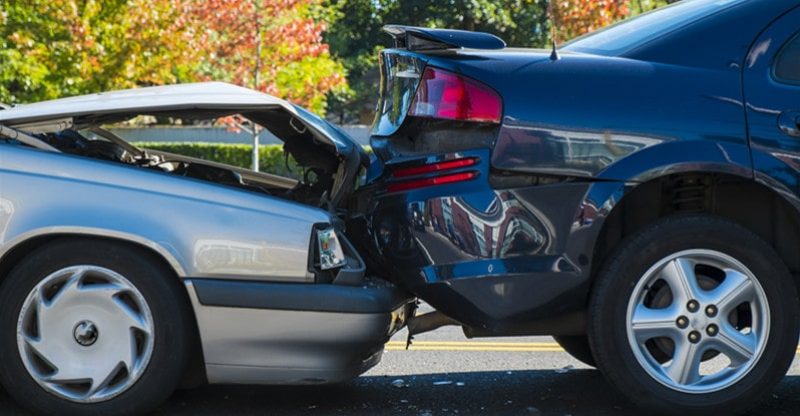Steps to Take After a Car Crash
Imagine cruising down the open road, your favorite song playing, when suddenly your world is rocked by a car accident. Shock and panic set in. What should you do now?
The decisions you make in these crucial moments can impact your health, finances, and legal status. That’s why we’ve created this straightforward, easy-to-read guide. Unraveling the process step by step, we’ll walk you through the critical actions you need to take after a car crash.
Let’s turn this stressful scenario into a manageable one together. Ready to learn? Let’s dive in.
Ensure Safety First
In the immediate shock of a car accident, it’s normal to feel a rush of adrenaline. But don’t let it overpower your rational thinking. Your priority is ensuring you and the other people involved are safe.
Check for Injuries
Before anything else, take a moment to check yourself for any obvious injuries. Are you bleeding, feeling pain, or having trouble moving any body part?
If you’re seriously injured, try not to move and wait for medical professionals. Also, if others are in your vehicle, ask them if they’re okay. If it’s safe, check on the occupants of the other vehicle(s) involved.
Clear the Path and Alert Others
If you can move and your vehicle isn’t too damaged, steer it to the side of the road, away from traffic. This isn’t about taking responsibility for the accident or making it seem like you’re at fault. It’s about ensuring that no further accidents occur because of the initial one.
If moving the car isn’t possible, switch on your hazard lights. This will alert oncoming traffic about the situation and hopefully prevent additional crashes.
Seek Medical Attention
Just because you can’t see an injury doesn’t mean it’s not there. Some car crash injuries, like whiplash or concussions, might not present symptoms immediately.
Call for Medical Assistance
If you or anyone involved in the accident is seriously injured, call 911 right away. Don’t attempt to move anyone unconscious or complains of neck or back pain. Wait for medical professionals to arrive.
Schedule a Follow-up Examination
Even if you feel fine right now, scheduling a check-up with your doctor soon after the accident is a good idea. This helps catch any potential injuries that may have been overlooked, such as those that manifest symptoms only after a few hours or days.
Reporting the Incident
Imagine a car crash as a fast-paced movie scene that unfolds in front of your eyes, except you’re not just a viewer. You’re a part of it.
Once the dust settles and the immediate shock wears off, it’s time for the next crucial act – reporting the incident. This involves narrating your version of the events to two key ‘audiences’: the police and your insurance provider.
Speaking to the Police
Why tell the police? Well, their report serves as an official record of the crash. It’s like your personalized mini-documentary, with all the important details about what transpired. This can become vital evidence, especially if any legal issues pop up later.
Ringing up Your Insurance Provider
When you inform your insurance company, you’re doing more than sharing unfortunate news. You’re initiating the process that could lead to a potential claim payout. This conversation is your first step towards financial recovery post-crash.
Gather Relevant Information
Comprehensive information about the accident can make your insurance claim process smoother and provide necessary evidence if legal action ensues.
Exchange Information With the Other Party
Typically, you’d exchange names, contact information, and insurance details with the other driver. But also note their vehicle’s make, model, color, and license plate number. If passengers were in the other car, it’s helpful to have their names and contact information too.
Document the Accident
If you can, take photos or videos of the accident scene, the vehicles involved, their damages, any visible injuries, and even the weather. If there were any witnesses, ask if they’d be willing to provide statements about what they saw.
Seek Legal Advice
Car crash aftermaths can be complex. Consulting a law firm can ensure your rights are protected, and your interests are well represented.
Consult a Car Accident Attorney
A car accident attorney can guide you through the process, from making insurance claims to understanding the legalese in paperwork. They can help interpret laws, determine liability, and even represent you if the case goes to court.
Understand the Injury Claim Process
Getting a grasp on the car accident injury claim process can be daunting. This is another area where a lawyer proves invaluable. They can walk you through each step, explaining what to expect, what paperwork is necessary, and how long it might take.
Stay Organized and Proactive
Dealing with the aftermath of a car crash doesn’t end with reporting the incident and seeking medical help. It’s crucial to stay proactive, organized, and patient.
Keep Track of Medical Bills and Repair Costs
Retain all the records of your medical bills, car repair costs, and any other accident-related expenses. These provide a clear record of the accident’s financial impact on you.
Follow up Regularly
Keep in touch with your insurance company, medical providers, and lawyer. Regular follow-ups ensure you’re always up-to-date with your claim or case’s status.
Navigating the Aftermath of a Car Crash With Confidence
Navigating the aftermath of a car crash can feel like being lost in a maze, but with the proper steps, you can turn a corner and see the exit.
Keep your safety first, seek medical help, report the incident, gather information, seek legal advice, and stay organized. Remember, you’re stronger than the storm you’re in, and with knowledge on your side, you can handle any challenge that comes your way.
Do you want to find more helpful info? Check out more of our guides on our blog today!



